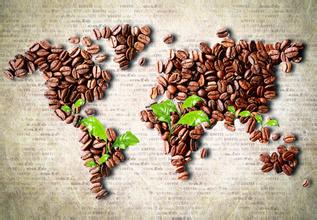Brief introduction of the International Coffee Organization an intergovernmental organization

The International Coffee Organization is an intergovernmental organization founded in London in 1963. It is composed of coffee importers and exporters. The organization is responsible for implementing the International Coffee Convention and is committed to improving the situation of the world coffee industry through international cooperation.
The establishment of the International Coffee Organization is based on the irreplaceable economic importance of coffee. Coffee is one of the most traded commodities in the world. 50 countries around the world produce coffee with an annual output of 1 million bags. The development of the coffee industry has provided employment opportunities for 100 million people in the world. Many coffee-producing countries are heavily dependent on the coffee industry, which accounts for 80% of their export earnings. The coffee production of the exporting member countries of the International Coffee Organization accounts for more than 97% of the world's total output. In the world coffee consumption market, where annual retail sales exceed 50 billion US dollars, the coffee consumption of the importing member countries of the International Coffee Organization accounts for 65 per cent. In the International Coffee Organization, both developing and developed countries participate in the discussion, and member States act in accordance with consistent guidelines to ensure that important and sensitive measures that have a far-reaching impact on the coffee industry are widely recognized and supported.
In the past, the International Coffee Organization implemented a quota system to keep coffee products that exceed consumer demand out of the market and keep prices relatively stable. Coffee organizations now achieve price balance by stimulating demand for coffee in emerging markets, reducing pest losses and improving marketing and quality, enhancing the long-term competitiveness of coffee growers and helping to eradicate poverty.
Specifically, the International Coffee Organization has made a special contribution to the world coffee industry through:
Organize regular high-level meetings to facilitate government representatives to exchange views, coordinate policies and cooperate on the coffee issue
Launch a coffee development project aimed at improving product quality and marketing tools and eliminating pests and diseases (to date, the total investment of the project has reached US $31 million, funded by co-raised commodity funds < Commen Fund For Commodities >)
-Creative coffee promotion activities in the two major emerging markets of China and Russia
-Establishment of a global coffee research network to enable member States to enjoy the results of research projects around the world
-provide market reports, economic models, in-depth economic research and coffee archives from more than 20 countries
-ensuring the transparency of the coffee market through the publication of statistics, processing 130000 pieces of data per year
-establish a strong private economic advisory committee to deal with matters such as food safety and work closely with the private sector through it
-promoting the sustainable development of the coffee industry and establishing environmental standards through research and expert discussions
-work closely with organizations such as UNEP, CABI Bioscience, FAO and ITC/WTO/UNCTAD
-through the development of the Internet project icoffee with Dow Jones and the establishment of a coffee service network to release the latest information about coffee.
The International Coffee Organization is an intergovernmental group that works closely with the United Nations, its specialized representative offices and other international organizations, and is headquartered in London. The organization has reached a headquarters agreement with the Commonwealth Government, which provides that representatives of member States enjoy foreign affairs privileges and diplomatic immunities to ensure their full independence in the exercise of functions related to the organization. The headquarters agreement provides for the status of members of the organization as international public servants and gives the executive officers the privileges and immunities granted to their diplomatic services by the Commonwealth Government.
The International Coffee Organization provides a forum for representatives of import and export member countries to meet and work together to ensure the smooth implementation of the agreement. The functions of the organization are carried out through the following three bodies: the International Coffee Council, the Executive Committee and the Executive Officer.
-Council-
The Council has the supreme authority of the International Coffee Organization and is composed of all its member States. The specialized functions of the Council include the renewal or termination of the International Coffee Convention, the adoption of the annual budget, the accession of new member States and the resolution of differences among member States.
-Executive Committee-
The Committee consists of eight importing and eight exporting member States elected each year. Members can be elected for a second term. Under the International Coffee Convention, the Committee is accountable to the Council, works under the general leadership of the Council, and is granted all powers except those exclusive to the Council. The powers of the committee include the rights necessary for the day-to-day operation of the coffee organization as stipulated in the agreement. As a general rule, all materials submitted to the Council are first examined by the Committee to ensure the normalization of the work of the organization and to simplify the burden on the Council.
-Executive Officer-
The Executive Officer shall be recommended by the Executive Committee and appointed by the Board and shall be responsible for the performance of all duties relating to him in the Agreement. The staff he appoints are responsible only to him.
-regular meetings-
Meetings between groups in the organization are held regularly, usually about 15 days a year. The Council normally meets twice a year for 3-5 days. Working groups and working committees are appointed to inspect specific matters and meet as required throughout the year.
-headquarters-
The International Coffee Organization, permanently headquartered in London, is a four-story building in the city centre with three conference rooms with simultaneous interpretation in the four official languages of the organization, with the largest conference room accommodating 84 delegates.
Contact person of the International Coffee Organization:
Executive Officer of the International Coffee Organization
Address: 22 Berners Street
London W1P 4DD, England
Tel: 0044-20-75808591
Fax: 0044-20-75806129
Email: maillto:info@ico.org
Important Notice :
前街咖啡 FrontStreet Coffee has moved to new addredd:
FrontStreet Coffee Address: 315,Donghua East Road,GuangZhou
Tel:020 38364473
- Prev

Basic knowledge of tasting Coffee Trilogy Fine Coffee
Black coffee-often drink coffee with too much sugar and cream, often fall into these sweet traps, and suddenly omit the original taste of the coffee, before adding sugar and cream, you might as well taste a mouthful of black coffee and meet with caffeine in the most unpackaged way. Sugar-put sugar before adding cream so that the sugar can be fully dissolved in high temperature and blend perfectly with coffee. Milk essence
- Next

Drink coffee and drink a good memory to help older women retain their memories
Drinking more than three cups of coffee or tea a day can help older women retain their memories, a new study has found. Dr Ritchie and others of the French National Center for Health and Medical Research completed the new study. They surveyed about 7000 elderly men and women in Bordeaux, Dijon and Montpellier. The subjects took a number of mental skills tests, including a series of word memory tests, the second year.
Related
- Beginners will see the "Coffee pull flower" guide!
- What is the difference between ice blog purified milk and ordinary milk coffee?
- Why is the Philippines the largest producer of crops in Liberia?
- For coffee extraction, should the fine powder be retained?
- How does extracted espresso fill pressed powder? How much strength does it take to press the powder?
- How to make jasmine cold extract coffee? Is the jasmine + latte good?
- Will this little toy really make the coffee taste better? How does Lily Drip affect coffee extraction?
- Will the action of slapping the filter cup also affect coffee extraction?
- What's the difference between powder-to-water ratio and powder-to-liquid ratio?
- What is the Ethiopian local species? What does it have to do with Heirloom native species?

